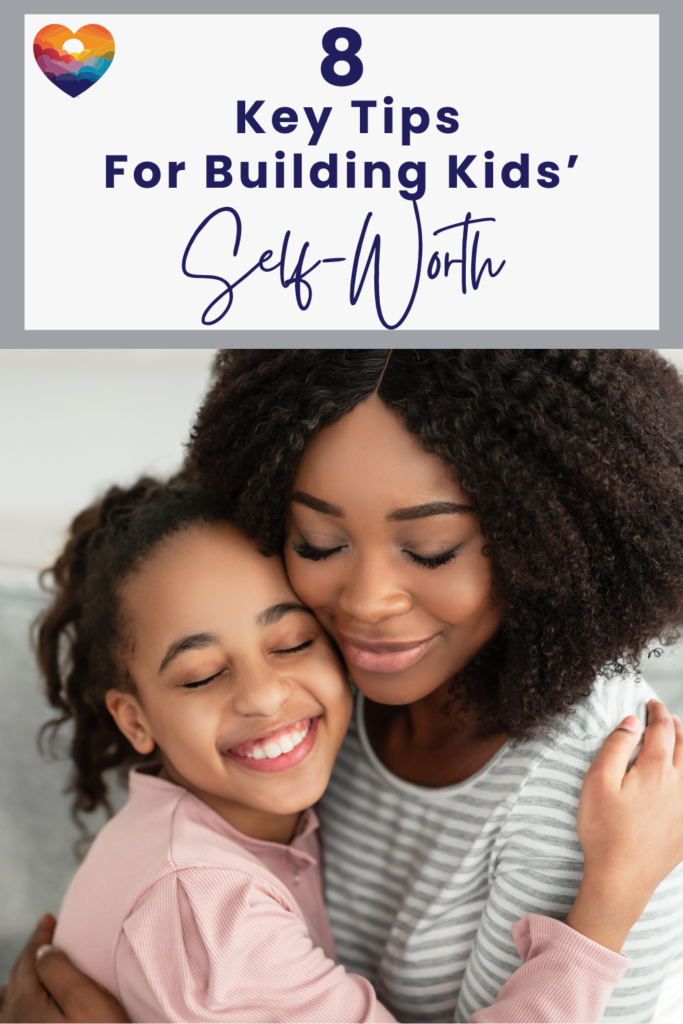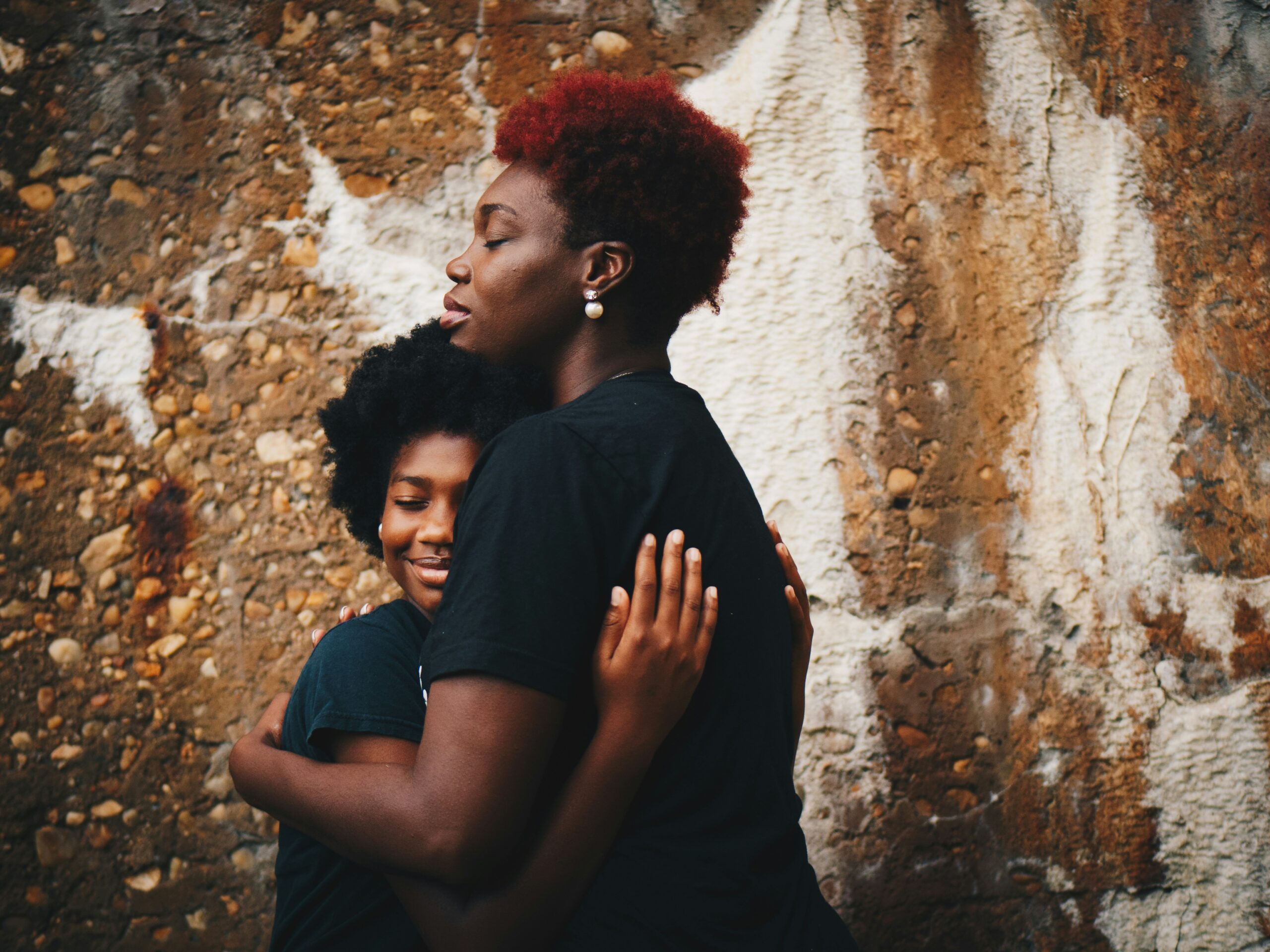Self-love isn’t selfish; it’s necessary.
Need some parenting advice on how to help your kids cultivate high self-esteem? If you’re wondering how parents can boost their kids’ self-worth, the answer starts with you. First of all, you need to be a role model by learning how to love yourself first.
At some point, it’s normal to look in the mirror and dislike our reflection.
While being unhappy with ourselves isn’t always a bad thing. Sometimes, it takes a moment of self-disgust or even self-loathing to motivate us to make a positive change in our lives. However, far too often, we find ourselves unpacking and living in self-loathing. No matter how hard we try, our brains seem to play the same I’m-not-good-enough song on repeat in our heads.
Over time a steady diet of not liking ourselves will eventually take its toll on our health, our relationships, our careers, our overall happiness, and, perhaps most importantly, on our children. Low self-esteem impacts our choices and our motivation. We are much less likely to pursue meaningful activities if we don’t value ourselves.
So, let’s explore how you can lead by example and help your kids develop their own sense of self-worth.
Why does self-love matter for a parent?
Because loving yourself means living with and radiating more peace. Loving yourself means taking responsibility for your life and not feeling victimized by everyone and everything. Loving yourself means you don’t have to hustle for other people’s approval and ultimately, it means you can build deeper connections and experience greater joy. In other words, loving yourself means you can model a healthy mind and lifestyle for your kids.
Even though low self-esteem in children can take many different forms, including poor school performance, becoming sexually active at a young age, eating disorders, and drug and alcohol abuse. By learning to love yourself, you can help your children avoid or work through many of their self-worth issues.
Low self-esteem may very well be rooted in a traumatic reality, but that does not mean the feelings you have in connection with trauma can’t be changed.
Here are eight ways you can learn to love yourself and model self-esteem for your kids
1. Allow yourself to feel your feelings
First and foremost, acknowledging your feelings is crucial. As humans, we have the ability to feel a rainbow of emotions, but we often do anything we can to avoid feeling ‘negative’ feelings like anger, fear, loneliness, and grief. To cope, we numb. We drink too much, we shop too much, and we keep too busy. Being honest with your feelings is important to accepting who you are and learning to love yourself.
2. Act more and think less
Thinking isn’t enough to move you out of a dark place. You must take action. Give yourself easily achievable commands and follow through. For example, if you’d like to lose weight, instead of focusing on how much weight you need to lose, choose instead to replace one sugary snack with a fruit or vegetable. That’s it. Hold yourself accountable for just that one small action item. Small actions taken over time develop self-trust. Self-trust is at the heart of self-love.
3. Break the circuit of negative self-talk
Be ready when the old familiar loop of bullying voices starts playing in your head. Instead of letting the mean-spirited voices take over, have more empowering thoughts and phrases on the ready. When you start hearing, ‘You’re not good enough’ replace it with, ‘I am enough’ or ‘I don’t have to be perfect.’ It will break the loop just long enough for you to decide on a healthier action to take. Remember ~ small actions taken over time develop self-trust.
4. Look beyond circumstances
Everyone has bad moments, days, and weeks. At times, circumstances look dismal. When circumstances or evidence you’ve collected tell you things are falling apart, keep going. You don’t know what doors may open, what insights you’ll have, what opportunities may arise, or what blessings may appear. You won’t always feel like being kind to yourself. Some days, it might feel like a lost cause, but remembering that each day and each moment stands on its own can help. You don’t have to be perfect. You need to not give up on yourself. One small positive choice, made repeatedly, will help you develop self-love.
5. Make yourself a priority
It is hard to love yourself if you are exhausted and resentful. If you are a pleaser, say no every once in a while. If you allow others to take advantage of you, create boundaries. If you fill your time serving everyone but yourself, you’ll not have the time to have fun, or learn a new skill, or replenish your tank. Your job as a human being is to take care of the body and soul you were given the day you were born. Making yourself a priority isn’t selfish; it is your life’s work! Take care of yourself as you’d take care of someone else. Prioritizing yourself is needed for health and happiness.
6. Look for proof
Make the intention to look for proof that you are loveable. If you seek out examples of why you are not loveable, that is exactly what you’ll find. If, instead, you look for examples of all the good things about you, like ‘I like my smile’ or ‘I am really kind’, you will be shocked at all the examples that show up. Harvest examples of your worth. Notice the beauty in your life. Seek out things to be grateful for. Put your attention on your strengths. Commit to looking for proof that you are loveable and worthy is a skill you can develop. Try it every day, remembering that doing this daily, over time, will help you develop self-love. The more self-love you have, the better able you are to help boost your child’s self-worth.
7. Make time for friends
In the craziness of life and parenting, it is easy to put our friendships on hold, but we are hard-wired for connection. We release stress when connecting with other moms who won’t judge us. Being a part of a healthy group of women has been shown to reduce stress and anxiety in shocking amounts. So go ahead. Laugh a little. Release a little. Even when it feels impossible to make the time, carve out time to connect. Call, Facetime, or, best yet, meet up in person. You’ll be glad you did.
8. Dump perfectionism
Holding yourself to impossible standards is the fast pass ticket to anxiety. Perfectionism will throw your mind, body, and soul into depletion and overstimulation, making you disconnected, exhausted, and sick in the long haul. Giving up perfectionism doesn’t mean you can’t be ambitious. Instead, focus on your most positive life, which focuses on healthy connections, more joy, and calm. Never being good enough makes everything about you. It robs the people you love of your full self, your full attention, your full love. Showing up, warts and all, is vulnerable. People want us, not our perfection.
Loving yourself allows you to be happier, make more meaningful decisions for yourself, and live a healthier, less stressed lifestyle. Isn’t this what we want for our children? Let them see you make mistakes. Let them see you laugh at yourself and move on. Permit them to live happily and imperfectly by modeling self-love for them.
If you’re looking for more tips on connecting with your kids, I’ve got you covered. Head over to 5 Effective Ways to Talk to Your Kids So They Actually Listen. It’s packed with straightforward advice (and a little humor) to help you communicate better and get those conversations flowing. Trust me, it’s worth the read!




